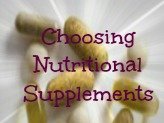Functions of Vitamin K in the Body
The major function of Vitamin K in the body is to prevent breeding. Once absorbed in the body, this vitamin is taken into the liver and is activated in various ways.
The ‘K’ in vitamin-K comes from the German word- koagulation. This is the process in which blood forms clots.
Every time you get a skin wound or even a simple cut, you need adequate blood clotting ability to close the wound and hence prevent excessive bleeding. Thus lack of enough of this vitamin from food, improper absorption into the intestine and a damaged liver can result to inability of blood clotting.
On the other hand, we do not want too much blood clotting ability because when we are not wounded, we do not want our system to mistakenly block an otherwise functioning blood vessel.
Vitamin-K is one of the most important nutrients for keeping our blood clotting ability at the right level.
Other functions include:
- Promotes proper regulation of inflammatory response
- Supports brain and nervous system structure
- Protects bones from weakening or fracture
- Prevents calcification of blood vessels or heart valves
- Protects against oxidative damage
What are the best sources of vitamin-K?
Vitamin K is a fat-soluble vitamin which is naturally produced by the bacteria in the intestines. It plays an essential role in normal blood clotting and helps promote bone health.
Vegetables are good sources of this vitamin, and especially green vegetables. Kale, collards, spinach, broccoli, and cabbage also contain high amounts. Other sources are soybean oils, strawberries, milk and dairy products.
Newborns have very little of this vitamin in their bodies. They usually receive a shot of it soon after birth. This shot allows normal blood clotting to occur during their first weeks of life.
What are the Signs of Vitamin K Deficiency
What are the signs of vitamin-k deficiency? Well, because this vitamin is essential for the normal synthesis of blood clotting proteins, a deficiency leads to impaired blood clotting. This can be measured as the length of time it takes for blood to form a clot, known as prothrombin time.
People on anticoagulant drugs (blood thinners) may experience a deficiency, but should not change their vitamin-K intake without consulting a physician because the effectiveness of the drug may be affected.
Treatment with anticoagulants during pregnancy may result to bone abnormalities in the fetus. Infants usually have low levels of prothrombin and other vitamin K dependent clotting factors.
Newborn babies lack the intestinal bacteria to produce vitamin-K and need a supplement for the first week. Thus new born infants should be given prophylactic vitamin-K. This can either be orally or through intramuscular injection.
People taking antibiotics may lack this vitamin temporarily because intestinal bacteria are sometimes killed because of long-term use of antibiotics.
In addition, people with chronic diarrhea may have problems absorbing sufficient amounts of this nutrient through the intestine and should consult their physician to determine if supplementation is necessary. Significant insufficient amounts may result to hemorrhaging.
Vitamin K Supplements
Most people get enough from their diet, so supplements are usually unnecessary for them. However, if you realize that your body is not getting enough of this nutrient, supplementation is necessary.
Water-soluble forms of the vitamin are available and may be beneficial for people with problems in fat digestion and absorption.
Multivitamin supplements are also available with or without vitamin-K. If you take an anti-coagulant, avoid supplements that contain vitamin-K.
Although a tolerable upper intake level has not been established for vitamin-K, excessive amounts can cause the breakdown of red blood cells and liver damage. Therefore, large doses are not advised.
Vitamin Related Articles








New! Comments
Have your say about what you just read! Leave me a comment in the box below.